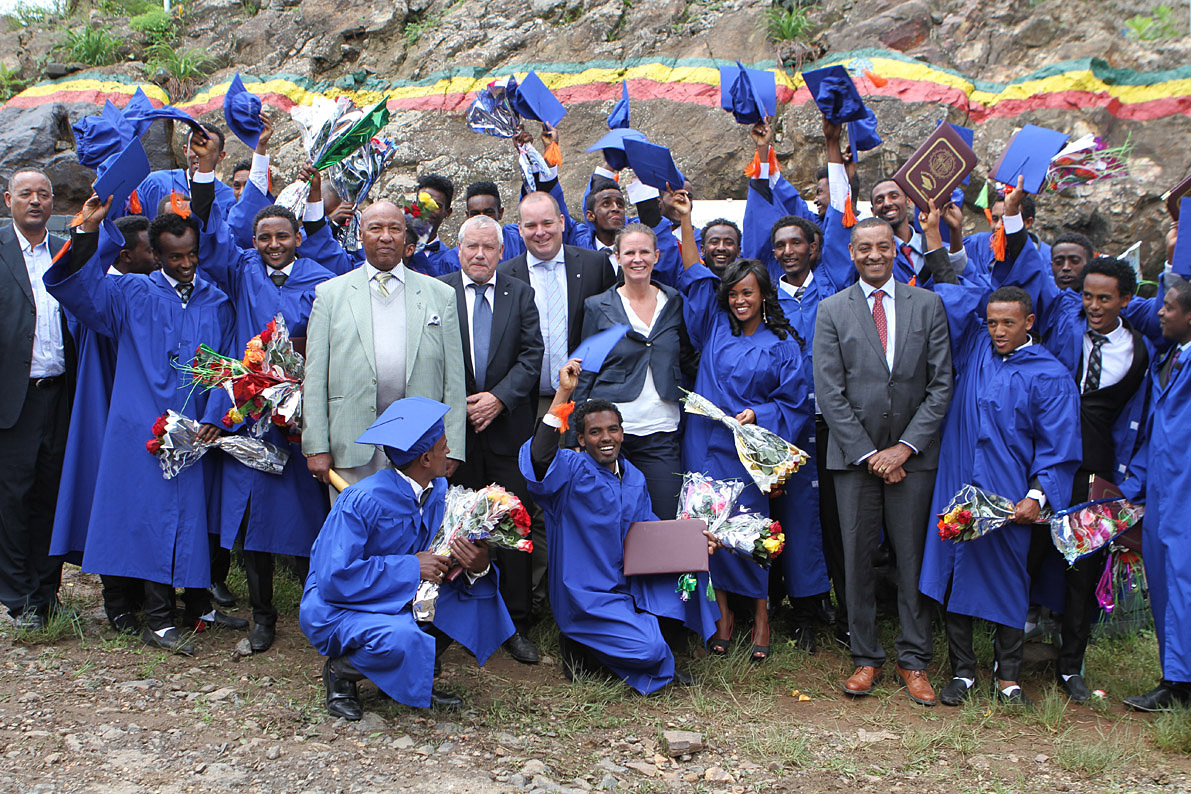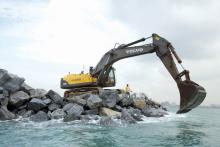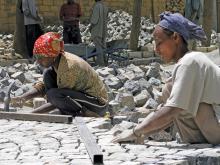
To help redress the severe shortage of trained service technicians for construction equipment and trucks in Ethiopia,
Ethiopia is a country with a booming infrastructure and civil engineering sector. Service technicians for construction equipment and trucks are in high demand and local colleges are struggling to train students at a sufficient rate – many of them lacking the modern equipment, vehicles and components required. For this reason, Volvo initiated the Heavy Duty Equipment and Commercial Vehicles Academy (HDECOVA) at the Selam Technical College in Addis Ababa in 2013, suppling equipment, teachers and the curriculum. On Saturday 18th July 2015 the first intake of students graduated in front of a packed audience of friends, family, ambassadors, governmental ministers and sponsors.
“Our educational system has not developed in parallel to the development of the industry, which is why we lack technicians who have achieved the knowledge and skills equivalent to the technology of the machines,” says Samuel Desta, service manager for Volvo Construction Equipment at independent Ethiopian dealer Equatorial Business Group (EBG).
During the three-year program the students received the necessary training in practical work, theory and ethics to become skilled and highly sought-after technicians. Out of the 27 students who graduated with a Level 3 diploma, 10 will be absorbed into the Volvo distribution network in Ethiopia, while another 10 will join the in-house service team at one of Volvo Trucks’ biggest customers in the country. Some of the remaining students plan to continue studying for another six months to achieve a Level 4 diploma.
“This first set of students has played an important role in the development of the program,” says Jonas Rönnebratt, aftermarket director for Hub South (Africa) at Volvo Construction Equipment Sales Region EMEA, who attended the graduation ceremony. “We have learnt a lot from them about what the program should include and are grateful for their enthusiasm. After all, they applied to a program that had no previous reputation and has been partly developed in parallel with their education. There is much to celebrate.”
HDECOVA was launched in cooperation with the Swedish International Development Agency (Sida) and the United Nations Industrial Development Organisation (UNIDO). The ambition is that, as well as satisfying the country’s need for technicians, the program will also have a positive effect on the local economy and secure a brighter future for the students.
“The training has given me a lot of new skills and opportunities to build my confidence,” says HDECOVA graduate, Fasil Asefa. “The staff and resources are very good and – best of all – the trainees are respected. Now I have skills and a better understanding of new technologies I am sure there will be a lot of prospects for me, especially maintaining heavy-duty machinery.”
Using HDECOVA as a model, Volvo intends to establish similar training programs for technicians in ten other African countries, including Zambia and Morocco. These countries are selected based on need, as well as Sida and UNIDO’s strategies for aid.
“Volvo vocational training schools are an excellent way to ensure our customers receive the highest quality aftermarket support for their construction equipment, as well as giving back to the local community,” concludes Rönnebratt.








